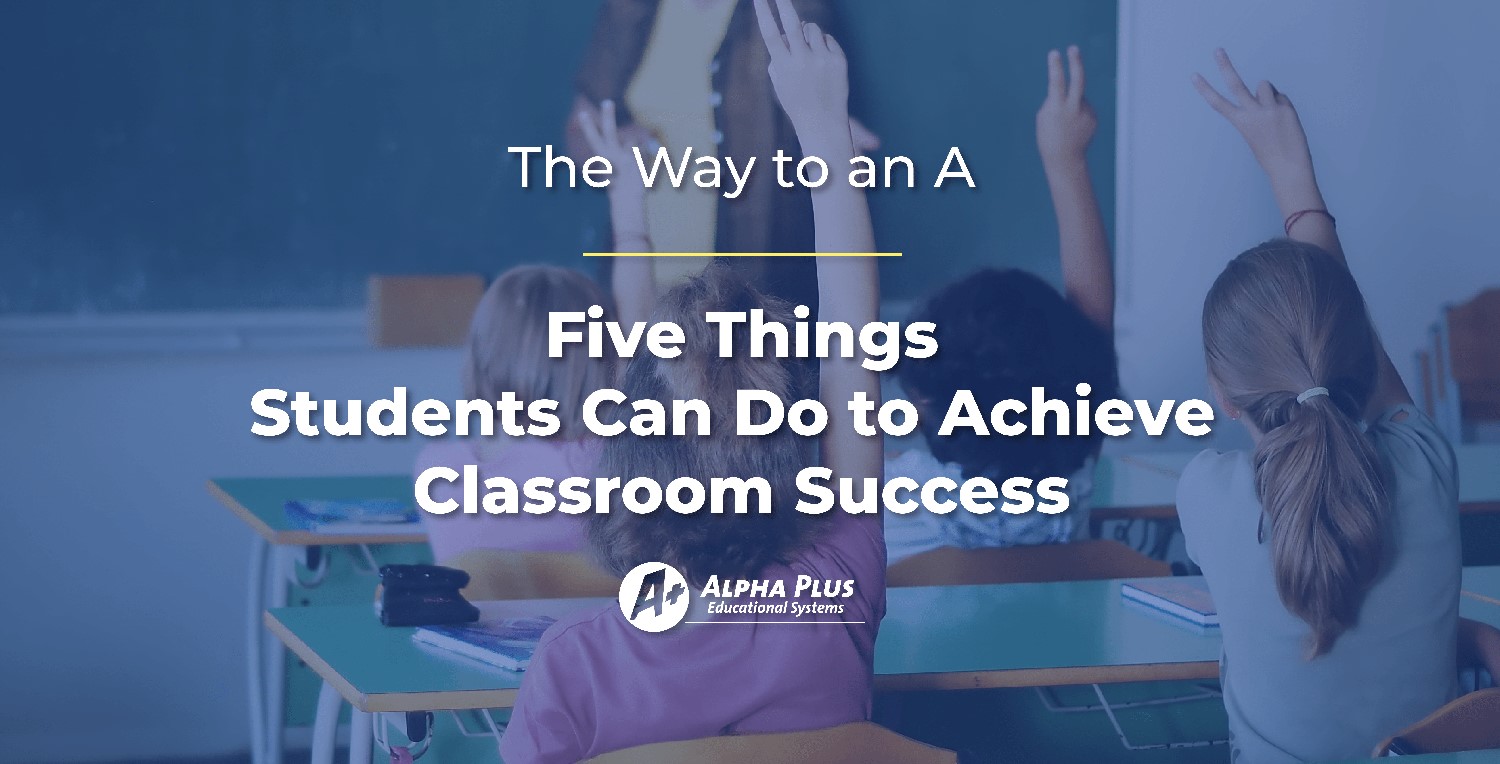The Way to an A:
Five things students can do to achieve classroom success

It’s no secret that what happens in the classroom will have a big impact on student achievement. But while we may think of student achievement in terms of quality study time and good test grades, students often ignore some simple ways to build a better report card.
This week, we have 5 simple things students can do to improve their academic outcomes.
- Go to class, every day and on time.
Being on time for class shows consideration for the teacher. Also, since the beginning of the class period often includes an overview of the material to be taught, it’s one of the most important parts of the class period. The old adage is true 100% of the time. The key to success is “showing up.”
- Get the teacher on your side.
Sounds simple, because it is simple. Teachers like – and often reward – students who are engaged, polite and respectful. Students who show up prepared with a good attitude will get the benefit of the doubt when test answers are subjective and grades on the line. Bonus points – thank a teacher who goes above and beyond. They’ll appreciate the effort being noticed.
- Position yourself for success.
This is cliché is the business world but literally true in the classroom. Students who grab the “power seats” – those in the front row – are likely to get more help from the teacher and score better in the long run. Students in Harvard Law School know this trick. When a class’s final grade is based on participation, those students have been known to camp out just to earn a power seat in the front row. While I wouldn’t recommend a hallway sleepover for your middle schoolers, I would urge them to sit up front.
- Make friends with the smart kids.
All of us are associated - for better or worse –with the company we keep. Students can do themselves a huge favor by choosing their friends in and out of the classroom wisely. Doing so leads to better classroom behavior and better life choices. Academically, having smart friends also means a built–in study buddy. Win-Win!
- Extra credit isn’t optional.
Yes, I know extra credit is often introduced as optional, but in reality, it isn’t. High achievers recognize extra credit assignments as golden opportunities, and they take advantage of that opportunity every time. Don’t miss extra credit. It can make all the difference.